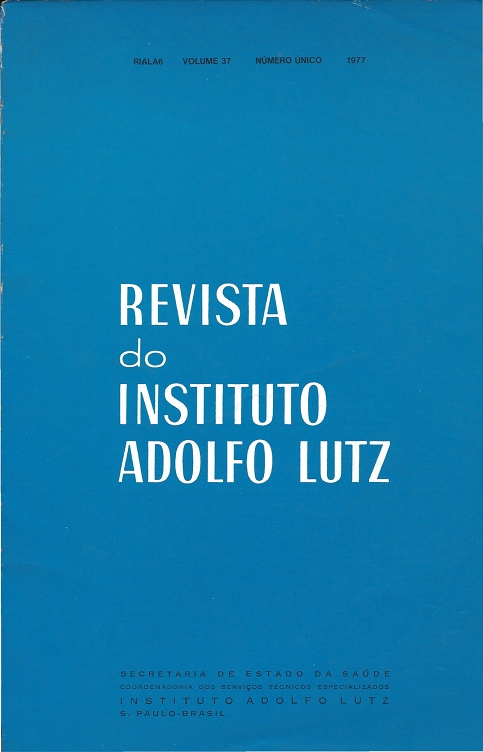Abstract
Aldrin, an organochlorinated insecticide used in Brazil, is recomended for treatment of soi!, seeds and vegetable parts which are to be planted. Low levels of aldrin in foods are expected. The tolerance limits for non-processed cereals is 0.02 mg/kg. In order to asses the influence of processing such as washing and cooking on the aldrin, content of cereal treated before use as seed, samples of rice showing 3.4 mg/kg of aldrin as residue were analysed. Gas chromatography with electron capture detection was used for determination of aldrin residues in rice extracts. Simple washing with water reduced the content of aldrin to 82.3% ofthe initial residue and the process of cooking reduced to 32.3% of the initial
value. Dieldrin was not detected. Apparently, the conditions of washing and cooking are not sufficient to transiorm aldrin to dieldrin.
References
wastewaters. Ottawa, Water Quality Division Laboratories, Inland Waters Branch, Department of the Environment,
1972 [Multilitado]
2. LARA, W.H. - Determinação de resíduosde pesticidas organoclorados em alimentos.
Definições e considerações gerais.
Rev. Inst. Adolfo Lutz, 31: 125-32,
1971.
3. ORGANISATION MONDIALE DE LA SANTÉ - Les dérivés mercuriels et leurs produits de remplacement dans traitment des semences. Rapport d'une réunion conjointe FAO/OMS. Genêve, 1975. [Série de rapports techniques nº 555]

This work is licensed under a Creative Commons Attribution 4.0 International License.
Copyright (c) 1977 Instituto Adolfo Lutz Journal
